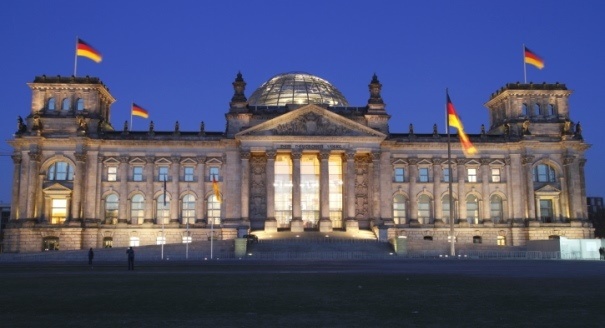In recent weeks, a number of senior German politicians have given major speeches about Germany’s role in the world. The message is clear: the German political elite has begun a long ascent to a new, enhanced position in global affairs. Other countries should take note.
The fact that the remarks were led by Germany’s nonexecutive president, and not the more powerful chancellor, does not detract from the significance of the incipient shift. More importantly, the current German government’s inclusion of both center-right and center-left parties means that the country’s political elite is seeking broad agreement on Germany’s future geopolitical role in the world.
That is no cause for alarm. Germany’s president spoke of a “good” Germany, and there is every reason to believe him. The country and its people have changed fundamentally since talk of geopolitics—a word long associated with Nazist propaganda—was last in vogue in Berlin. Present-day Germany is solidly democratic; it is a staunch supporter of human rights; and it abhors inequality, injustice, and all forms of violence.
The way Germany sees its position in the world is especially significant because the country is so often the driving force of the European Union. Berlin rose to that top spot during the euro crisis, and will stay there as the eurozone emerges from its woes and moves toward fiscal union.
However, Germany’s future role cannot be confined to providing stewardship of the EU’s integrated economy and finances. The role will also need to include security and, when necessary, the use of military force. Very slowly and reluctantly—with numerous equivocations and reservations, not least from a skeptical public—Germany is embracing military power as part of its foreign and security policy toolkit.
Of course, it has taken Germany several decades to reach this new position. During the Cold War, West Germany reemerged as an economic power par excellence. After 1990, a reunified Germany became a champion of soft power throughout the world. Yet hard-power interventions, as part of NATO-led operations in the Balkans and Afghanistan, have always been marked by caveats. In the case of Libya, Germany abstained from approving the use of force against the regime of strongman Muammar Qaddafi, drawing the ire and sneers of its allies.
Now, this demurred attitude is quietly fading. As the Germans watch the changes in Europe’s neighborhood, they too will change their ways. The Middle East and North Africa have entered a long period of turbulence, and upheavals in many countries continue to have profound effects on Europe’s security. At the same time, the U.S. profile in the region has become appreciably lower.
In sub-Saharan Africa, France, the country that provided postcolonial stability and a modicum of security for over half a century, is finding the job increasingly hard. African turmoil threatens Europe with waves of refugees—and much more besides. The Mediterranean is no longer a safe barrier against the threats of the Middle East or Africa.
In Europe’s East, there are barriers of a different kind. The long-held assumption that former Soviet republics would become the EU’s “zone of comfort” thanks to notional association with the union, has faced a reality check in Ukraine. Russia, which many Germans had hoped would gradually become an extension of Europe without joining the EU, has started the process of integrating its post-Soviet neighbors into a Eurasian Union. That nascent bloc has the potential to be the EU’s partner, but is more likely to become its competitor.
To forestall such competition, Germany will need to deal directly with Russia on matters pertaining to Ukraine and other former Soviet countries. Indeed, on February 13, German Foreign Minister Frank-Walter Steinmeier held talks in Moscow with his Russian counterpart, Sergei Lavrov. One of the main agenda items was the ongoing unrest in Kiev.
Looking west, what started a couple of years ago as German anxiety over the U.S. pivot to Asia has since turned to anger at the spying activities of the U.S. National Security Agency revealed by its former contractor Edward Snowden. This is not the familiar anti-Americanism of German leftists, but something broader, deeper, and potentially longer-lasting.
In future, NATO will still have a role to play in providing transatlantic security. But once the alliance withdraws from Afghanistan later this year, it is likely to be seen as a general insurance policy rather than the centerpiece of Germany’s security architecture. Instead, as Carnegie’s Ulrich Speck has suggested, Germany’s future approach will be characterized by closer cooperation with France in Africa and with Poland in Eastern Europe.
Germany is emerging as a great power in Eurasia. To maximize its potential, Berlin will have to work closely with other global players. They should pay attention to Germany’s rise.






